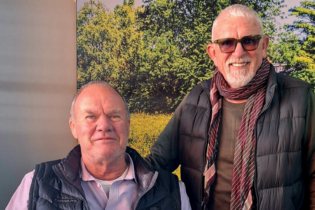Meetings explores what our industry is doing to support young talent struggling to find their place in the events industry.
At face value, two South African challenges – youth unemployment and the event industry skills shortage – look like they could (at least partly) solve each other. Especially as there are many graduates in the job market. But it’s not that simple. (Is it ever?)
Potential employers want candidates with experience, but the unemployed are struggling to secure placements to gain experience, in a chicken and egg scenario. Compounding this is that many employers say that degreed graduates are not work-ready, and they require someone who can hit the ground running.
Breaking the inexperience cycle
Seipati Maaga has a National Diploma in Events Management from Tshwane University of Technology (TUT). She says that entering the job market has been tough; “I wouldn’t say I have a clear idea on who to approach. I’ve just been searching for various event companies and even if their sites have no available vacancies, I still send an application hoping it’ll land in the right hands. The challenge I face mostly is that most event companies require connections. You don’t get in through an application, you get in through someone that already works there, through recommendation.”
She adds that most positions also require three years’ work experience, and trainee vacancies are scarce – it took her two years to find one with Event Synthesis. However; “My experience with Event Synthesis was life changing. I learned more than school could have ever taught me. The biggest surprises were how broad the industry is, from corporate to leisure events, there is so much room for consistent growth as you navigate the industry.”
Event Synthesis: Creating a win-win scenario
Angelique Smith, MD and founder of Event Synthesis, explains that the programme began as a way to build up a network of temporary staff for the large events her company often organises.
“It was important to me to take on event management, hospitality, or tourism students who want a career in the events industry and are passionate about it – so it’s not just a job for them. At the same time, they can gain the work experience they need to find permanent employment,” Angelique explains.
Consequently, Angelique has taken on and trained 186 students and graduates over the past five years, all of whom are now on her network and can put their hand up for assignments when they come up. But it’s more than just a hiring solution. Angelique also sees this as an opportunity to expose these young recruits to all aspects of event management – especially as many of them have unrealistic expectations of the type of work they should be doing.
She adds that many also need mentoring, from business coaching (gaining practical skills such as how to speak to clients, email and telephone etiquette, as well as ethical conduct) to developing leadership skills and cultivating a solutions-driven mindset – which is critical for success in the dynamic environment of eventing.
TUT: A continuous need to develop event management professionals
Dr Lisa Welthagen, subject head for event management at TUT, agrees that many event industry professionals have voiced concerns that young graduates are not work ready when they enter the job market. For this reason, she is currently conducting research to find out what skills the event industry is looking for in new recruits, and how the University can adapt its curriculum to ensure their students fit this profile.
While the research findings are scheduled to be published in April, Dr Welthagen has been able to share some of her findings already. One is that some eventing companies are reluctant to hire new graduates because they are too “fresh”, and they believe they will require “intense supervision and training” – a concern that can be a deterrent for companies still recovering from the impact of Covid. (However, this concern has turned out to be unfounded based on the feedback she has received from companies hiring TUT graduates, she adds.)
Another interesting finding Dr Welthagen highlights is the importance of personal aptitudes for this type of work; “There is a prominent focus from the industry to not only employ graduates with event management skills but also a high regard and consideration for personal attributes such as motivation, flexibility, accuracy, creativity, respect, trustworthiness, friendliness, and initiative to mention a few.”
Many of these attributes come down to personality and are not necessarily teachable.
CEPA: Bridging the gap from studying to doing
In her quest to ensure students have the right skillset for employment in the events industry, Dr Welthagen sits on the Council of Event Professionals Africa (CEPA), and TUT is one of several institutions of higher learning that are collaborating with CEPA to develop an academic patronage programme for their event industry students.
The programme will see CEPA members review the academic curriculum of the institutions they are working with, while engaging with final-year students through CEPA’s student council and through an annual online conference explicitly aimed at them. Students will also be given the opportunity to write the qualifying exam for the Certified Event Associate designation, and gain work-integrated learning opportunities and part-time work opportunities in the industry (which they will need to earn a designation).
Dr Welthagen sees closer collaborations like this as key to attracting and nurturing young talent, as it creates a platform to “raise concerns, improve the curriculum, and discuss work-integrated learning opportunities”. Happily, there is a trend towards this, although most associations are currently in the early stages of providing youth programmes for students.
SAACI: Exposing students to the industry
SAACI, the Southern African Association for the Conference Industry, is one such association. Gheeta Payle is SAACI’s vice chair and was responsible for setting up the SAACI Youth Council in August 2022 as “a platform to expose youth to the industry, discuss challenges, and provide networking opportunities”. Currently six young people sit on the Council – a mix of 2nd and 3rd year students and young professionals – to share their input on how to move forward.
(Incidentally, Gheeta is also the African representative on the ICCA Future Leaders Council – ICCA being the International Congress and Convention Association, which shows that bringing new talent into the industry is a global challenge and not unique to South Africa.)
One challenge the Youth Council identified, and which Angelique and Seipati also mention, is that many young people do not realise how multi-faceted the events industry is. “They might work in banqueting and hate it – but there are other very different event jobs that could be a better fit, and we are striving to make them aware of the full scope of options, so we do not lose them to other industries,” says Gheeta.
This has led to several initiatives, including a student familiarisation tour in Cape Town at the end of last year, in collaboration with and sponsored by Wesgro (the Western Cape Tourism, Trade and Investment Promotion Agency) and CPUT (Cape Peninsula University of Technology). The group of CPUT students were taken to popular tourisms spots around the city, as well as to a township for lunch, followed by a site visit at a leisure hotel and one a business events hotel.
“It was a huge success, and we are planning to roll out more student familiarisation tours in other provinces this year,” says Gheeta.
SAACI also hosts student delegations at key industry events such as Meetings Africa, WTM Africa, and SAACI’s annual Congress, and often collaborates with Fedhasa’s (the Federated Hospitality Association of South Africa) youth programme, to expose them to more aspects of the industry.
Going forwards, Gheeta intends to work more closely with institutions of higher learning and do a follow up programme for graduates who haven’t yet found jobs, to better understand why and how to help them.
“It’s about succession planning,” says Gheeta, and ensuring the industry’s future leaders are primed to carry our legacy forward.
For more information
Event Synthesis learnership programme: Angelique Smith at angie@eventsynthesis.co.za
CEPA’s academic patronage programme: Kevan Jones at kevan@sacia.org.za






